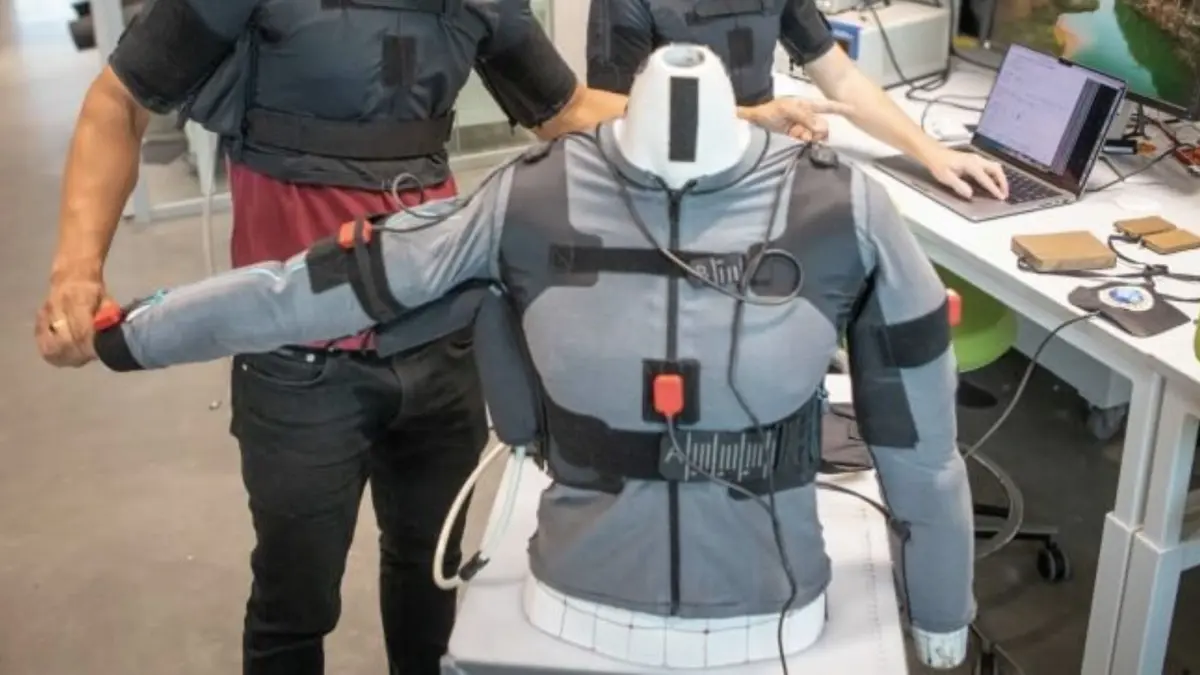For centuries, humans have turned to tools, braces, and therapy to restore movement after injury or disease. But what if the next stage of mobility isn’t about therapy or external devices, but about slipping into a soft robotic jacket that learns your movements, adapts to your needs, and becomes a seamless extension of your body? That future is no longer science fiction. It is being stitched, wired, and programmed in research labs right now.
Continue reading… “The Rise of Wearable Robot Jackets: Reimagining Human Movement”Using AI to help stroke victims when ‘time is brain ‘
Since entrepreneur Chris Mansi cofounded Viz.ai in 2016, the best-funded wizards of artificial intelligence have taken on board games, and created emoji that mirror your facial expressions. Meanwhile, Mansi has been developing algorithms to save the brain cells of stroke patients.
Continue reading… “Using AI to help stroke victims when ‘time is brain ‘”
The most promising medical technology on the horizon today
Discoveries in the field of telomere biology will have an impact on how we can stay young naturally and look younger than our chronological age.
Research in telomere biology has the potential to extend human life span, to dramatically lower rates of the great remaining killer diseases: heart disease, stroke, and Alzheimer’s. All three diseases increase exponentially with age, and their toll will be slashed as we we learn how to address the body’s aging clocks.
Continue reading… “The most promising medical technology on the horizon today”
Daily multivitamin does not cut risk of heart attack: Study
About a third of Americans take a daily multivitamin.
The risk of heart attack and stroke was not cut by taking a daily multivitamin in a study that followed more than 14,500 men for over a decade. There was a small reduction in cancer risk, according to results from the study released in October.
Continue reading… “Daily multivitamin does not cut risk of heart attack: Study”
Chocolate may help lower risk of stroke in men
The beneficial effect of chocolate consumption on stroke may be related to the flavonoids in chocolate.
According to a new study, eating a moderate amount of chocolate each week may be associated with a lower risk of stroke in men. The study was published in the August 29, 2012, online issue of Neurology®, the medical journal of the American Academy of Neurology. “While other studies have looked at how chocolate may help cardiovascular health, this is the first of its kind study to find that chocolate, may be beneficial for reducing stroke in men,” said study author Susanna C. Larsson, PhD, with the Karolinska Institute in Stockholm, Sweden.
Continue reading… “Chocolate may help lower risk of stroke in men”
Short-term exposure to air pollution may trigger heart attack, stroke
Risk of heart attack or stroke can jump after high-pollution days.
Short-term exposure to air pollution — just a day or a week in some cases — may kick off a heart attack or stroke, scientists now say.
Continue reading… “Short-term exposure to air pollution may trigger heart attack, stroke”
Large families good for mother’s health: study
Having four or more children halves a woman’s chances of suffering a stroke.
Despite the stresses involved with having a large family, having four or more children might be good for women, a study has found.
Top 5 man killers in the U.S.
Heart disease is the number one killer of men.
Jeff Hale had just closed a $1.5 million deal on a a sunny September day in the Pacific Northwest. He was taking th day off to celebrate when he began feeling compression high in his chest, some pain in his left shoulder, and an unsettling sense of dread.
Continue reading… “Top 5 man killers in the U.S.”
Study: Coffee, Exercise and Blowing Your Nose Can Trigger a Stroke
Doctors have identified eight everyday activities, including drinking coffee, that often precede a stroke.
According to new research, everyday activities such as drinking coffee, energetic sex and even blowing one’s nose can burst blood vessels in the brain. Losing your temper and suffering a shock can also temporarily raise the risk of suffering a stroke among people who have aneurysms.
A Cup of Coffee a Day May Cut Risk of Stroke in Women by 25%
Moderate coffee consumption may decrease the risk of some diseases such as diabetes, liver cancer and possibly stroke.
A morning caffeine fix might do more than perk you up – it could save your life. Women who drink more than a cup of coffee a day can lower their risk of having a stroke by 25 per cent, research shows.
Continue reading… “A Cup of Coffee a Day May Cut Risk of Stroke in Women by 25%”
Daily Intake of Diet Soda Could Increase Risk of Vascular Events
Diet soda increases your risk of vascular events.
For years diet soda has been portrayed as the “healthier soda” choice because it has no calories. But zero calorie sweeteners like saccharin and aspartame come with risks including a link with bladder cancer, brain tumors, and osteoporosis. If that’s not reason enough to put down the frighteningly sweet bubbled beverage, new research recently presented at the American Stroke Association’s International Stroke Conference in Los Angeles found that daily intake of diet soda increases your risk of vascular events by 61 percent, according to a story on the Today Show.
Continue reading… “Daily Intake of Diet Soda Could Increase Risk of Vascular Events”












